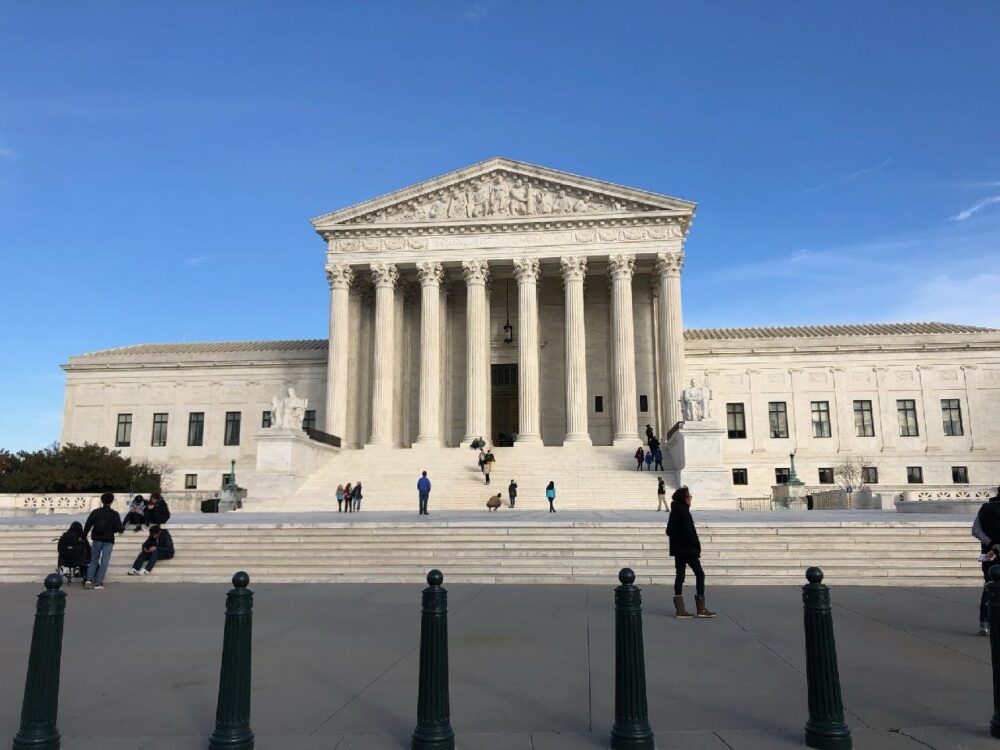
By Ansharah Asif
In September, United States President Donald Trump chose Judge Amy Coney Barrett to nominate for Supreme Court Justice. Barrett, if confirmed in this week’s Senate hearings, would replace the late liberal Justice Ruth Bader Ginsburg, who passed away last month at age 87.
Who is Amy Coney Barrett?
A mother of seven children, Barrett was born in New Orleans in 1972 and graduated from Notre Dame law school in Indiana in 1997. Barrett clerked for the late Justice Antonin Scalia and then became a law professor, settling at Notre Dame in 2002. She was nominated by President Trump to the Chicago-based Seventh Circuit Court of Appeals in 2017.
Where does Barrett stand on the most heated topics today, such as abortion, LGTBQ rights, death penalties, Second Amendment gun rights and immigration laws?
In 2006, Barrett and her husband signed a newspaper advertisement published by Indiana-based anti-abortion organization St. Joseph County Right to Life Group. The newspaper advocated an end to the “barbaric legacy” of Roe v. Wade, the landmark 1973 decision protecting women’s right to an abortion.
“We, the following citizens of Michiana, oppose abortion on demand and defend the right to life from fertilization to the end of natural life,” the ad read. “Please continue to pray to end abortion.”
Barrett has also ruled or argued in favor of laws restricting abortions, including bans on abortions sought on the basis of sex or disability and stricter requirements for notifying the parents of minors seeking abortions.
In 2015, Barrett signed a letter titled “Letter to Synod Fathers from Catholic Women” sent to Catholic bishops. In it, she wrote about the “significance of sexual difference and the complementarity of men and women” and said that “marriage and family founded on the indissoluble commitment of a man and a woman provide a sure guide to the Christian life.”
In one of her lectures at Jacksonville University, Barrett addressed the case Obergefell v. Hodges, which established the right to marry for same-sex couples. Barrett argued that the ruling wasn’t based on the right for same-sex couples to marry but instead whether the states had the right to decide if that same-sex marriage was legal.
Barrett has also criticized the death penalty.
“While these judges are obliged by oath, professional commitment, and the demands of citizenship to enforce the death penalty, they are also obliged to adhere to their church’s teaching on moral matters,” she said.
Barrett argues that Catholic judges should be allowed to “recuse” themselves from death penalty cases that contradict their religious beliefs. It is unlikely, however, that Barrett will significantly change the Supreme Court’s support for capital punishment.
While Barrett has said that legislatures have the power to prohibit dangerous people from possessing guns, she has supported Second Amendment challenges to gun restrictions in cases like Kanter v. Barr.
“History does not support the proposition that felons lose their Second Amendment rights solely because of their status as felons, but it does support the proposition that the state can take the right to bear arms away from a category of people that it deems dangerous,” Barrett said.
Barrett also has a record of ruling against immigrants.
Around June, Judge Barrett agreed with Trump’s immigration policy expressed in the case Cook County v. Wolf. President Trump hoped to implement a ‘public charge’ rule that created barriers to low-income immigrants seeking to enter the US, a policy that would have disadvantaged green card applicants who apply for any public assistance and which the Seventh Circuit prevented the Trump administration from implementing.
In one of her more well-known cases, Barrett voted to deport a man who had a legal 30-year residency. The immigrant, Ruben Lopez Ramos, claimed to have his right to stay in the US as he had first moved here when he was 10 years old, and his mother was a US citizen despite his 10-year sentence for dealing drugs. The Seventh Circuit did not give Ramos the opportunity to argue that his deportation violated his constitutional rights.
So why is Barrett’s nomination so contentious?
Republican senators have been accused of hypocrisy as they now advocate nomination take place this year around presidential election time.
When Justice Scalia passed away in 2016, Republicans refused to hold hearings for Democratic President Barack Obama’s nominee Merrick Garland on the basis that Scalia’s “vacancy should not be filled until we have a new president,” as Senate Majority Leader Mitch McConnell said at the time.





